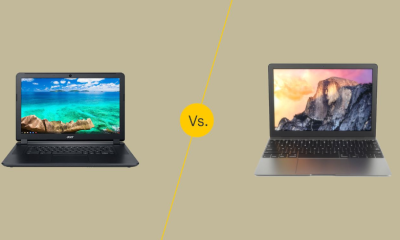EDUCATION
The Future Of Learning: Online Courses That Are Reshaping Education
Learning In recent years, the landscape of education has undergone a remarkable transformation.
In recent years, the landscape of education has undergone a remarkable transformation. The once clear-cut path through traditional classrooms and textbooks is now intricately interwoven with digital platforms and online resources. This shift towards incorporating online learning into the education system is not just a trend but a significant evolution in how knowledge is acquired, shared, and applied. In this exploration, we delve into the profound impact online courses have on reshaping education, marking a pivotal shift in lifelong learning and professional development.
The Shift in Traditional Education
The traditional education system, with its centuries-old methods, is experiencing a seismic shift. This transformation is largely driven by integrating online learning into its core structure, creating a blended approach that leverages the efficiency and reach of digital platforms. This section outlines how educators and institutions worldwide adapt to this change, recognising the importance of online courses in today’s fast-paced, technology-driven world.
The Importance of Online Courses
Online courses have emerged as a crucial component of lifelong learning and professional development, bridging the gap between formal education and the evolving demands of the workplace. They offer a flexible, accessible, and often more affordable way for individuals to enhance their skills, pivot in their careers, or pursue new interests. This part of the discussion underscores the role of online learning in empowering learners to take control of their educational journeys.
Scope of the Article
As we delve into the discussion on how best online courses reshape education, we aim to cover several key areas. From the evolution of learning platforms to the variety of courses available and their impact on traditional educational systems, this article will provide a comprehensive overview of the online learning landscape. Expect insights into success stories, challenges, and the future possibilities online education holds.
The Evolution of Online Learning Platforms
From Correspondence to Digital Classrooms
Tracing the trajectory of distance education reveals a fascinating journey from paper-based correspondence courses to today’s sophisticated digital classrooms. This historical perspective highlights the progress made and sets the stage for understanding the current capabilities and potential of online learning platforms.
Leading Platforms Making a Difference
A closer look at platforms like Coursera, Udemy, and Khan Academy showcases how these entities are pivotal in democratising education. By offering various courses across various disciplines, these platforms are instrumental in making learning accessible to millions worldwide.
Technological Innovations Driving Change
Technological advancements are at the heart of enhancing the online learning experience. Innovations such as interactive simulations, AI-driven personalisation, and immersive AR/VR experiences are pushing the boundaries of how content is delivered and consumed.
Types of Online Courses Reshaping Education
Professional Development and Skills Training
Online courses aimed at professional development and skills training address the critical skills gap in the workforce. These courses allow learners to acquire new skills or upgrade existing ones, keeping pace with industry demands.
Academic and Degree Programs
The emergence of online academic and degree programs is a testament to the growing acceptance of online education’s legitimacy and effectiveness. Universities around the globe are now offering fully online degrees, making higher education more accessible than ever before.
Hobby and Interest-Based Learning
The vast array of hobby and interest-based courses available online indicates the diverse potential of online learning. From photography to gardening, these courses cater to personal interests and offer a valuable outlet for creative and recreational pursuits.
The Impact of Online Courses on Traditional Education Systems
Supplementing Traditional Education
Online courses are increasingly being used to supplement classroom learning, providing students with additional resources, supplementary materials, and the opportunity to learn at their own pace.
Accessibility and Inclusivity
One of the most significant contributions of online courses is their ability to break down geographical and socio-economic barriers to education. By making quality education accessible to anyone with an internet connection, online learning is a powerful tool for inclusivity.
Challenges and Criticisms
Despite its benefits, online learning faces scepticism and challenges, ranging from concerns over quality and accreditation to the potential for decreased interpersonal interaction. Addressing these issues is crucial for the continued integration of online courses into the education system.
Success Stories and Case Studies
Individual Success Stories
The impact of online courses is best illustrated through the stories of individuals who have leveraged these resources to transform their careers and lives. These narratives serve as powerful testimonials to the potential of online learning.
Institutional Adoption and Integration
Schools, colleges, and universities are increasingly adopting and integrating online courses into their curriculums. This shift towards blended learning models exemplifies the changing landscape of education and its future direction.
Corporate Training and Development
Businesses across sectors are utilising online courses for employee training and development, recognising the efficiency and effectiveness of online learning in upskilling their workforce.
Looking to the Future: Trends and Predictions
The Blended Learning Model
The future of education will likely see a more pronounced integration of online and traditional learning, creating a blended model that leverages the best of both worlds.
Technological Advancements on the Horizon
Emerging technologies like AR/VR are set to revolutionise the online learning experience further, making it more immersive and interactive.
Global Educational Outreach
Online courses will continue to play a crucial role in global educational equality, providing learning opportunities to underserved communities worldwide.
Conclusion
Online courses have significantly reshaped the education landscape, breaking down barriers and opening up new opportunities for lifelong learning and professional development. From enhancing traditional education systems to empowering individuals across the globe, the impact of online learning is profound and far-reaching.
As we look towards the future, it’s clear that the evolution of learning through online platforms is just beginning. The potential for growth, innovation, and global outreach is immense, promising a future where education is more accessible, inclusive, and aligned with the needs of the modern world. The journey of learning continues, and online courses are leading the way.
Table of Contents
-

 Business5 months ago
Business5 months agoSepatuindonesia.com | Best Online Store in Indonesia
-

 Technology3 weeks ago
Technology3 weeks agoTop High Paying Affiliate Programs
-

 Tech5 months ago
Tech5 months agoAutomating Your Window Treatments: The Advantages of Auto Blinds
-

 Tech5 months ago
Tech5 months agoUnleash Your Potential: How Mecha Headsets Improve Productivity and Focus
-

 Instagram2 years ago
Instagram2 years agoFree Instagram Follower Without Login
-

 Reviews11 months ago
Reviews11 months agoAndroid Laptop vs. Chromebook: Which one is better?
-

 Instagram2 years ago
Instagram2 years agoIGTOK – Get Instagram Followers, Likes & Comments
-

 Business8 months ago
Business8 months agoFollow These 5 Tips To Avail Personal Loans At Lower Interest Rates




















